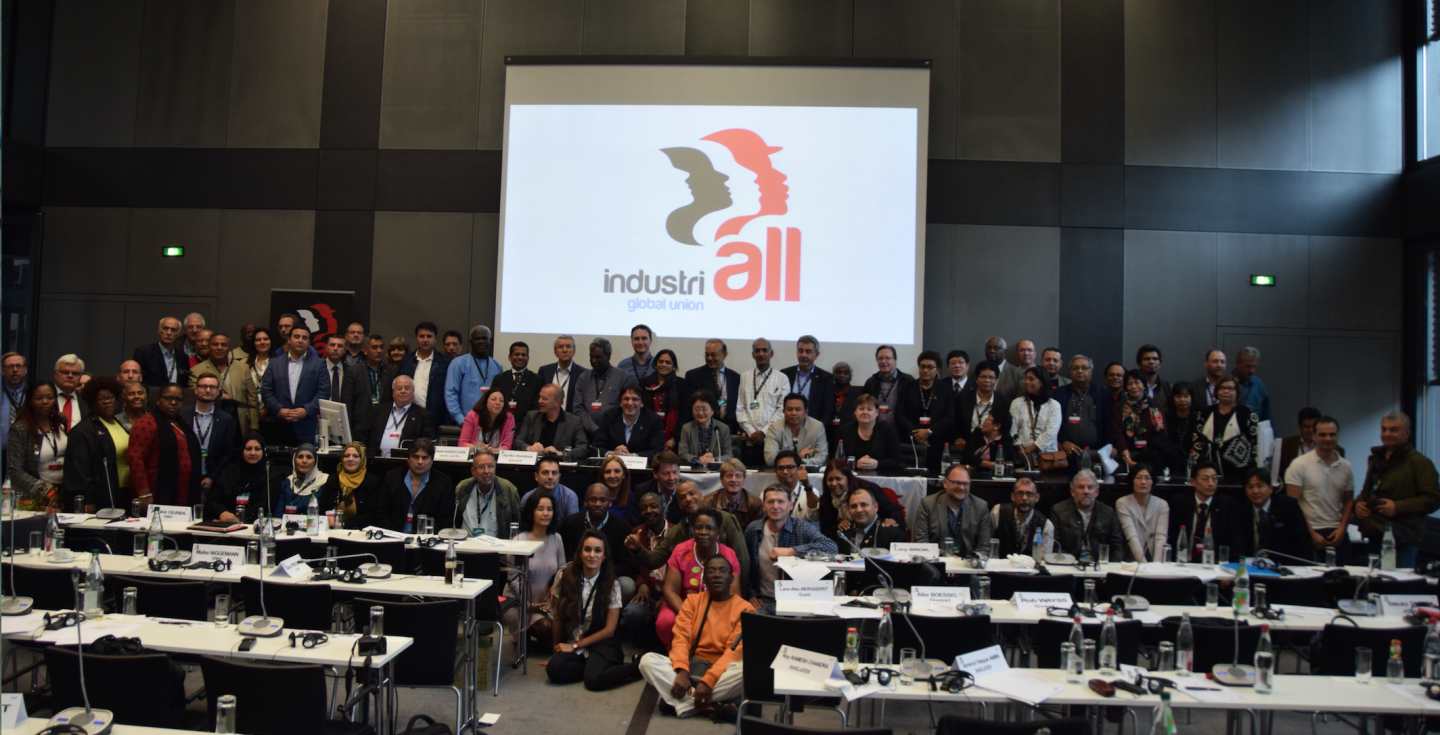24 May, 2016The textile, garment, shoe and leather industries employ 60 million people globally. On 22 – 23 May, union leaders from around the world met in Frankfurt for IndustriALL’s first world conference on the sector, discussing challenges and achievements.
135 representatives from over 60 textile and garment unions from 35 countries came together to discuss organizing workers, living wages and industry-wide collective bargaining.
In many parts of the world the garment and textile industry is synonymous with low pay and job insecurity. In the four years since its creation, IndustriALL has made major achievements in securing workers’ rights and safeguarding their right to join unions.
The ground-breaking Accord on Fire and Building Safety in Bangladesh, negotiated in the aftermath of the collapse of the Rana Plaza, is a legally-binding agreement between global unions and more than 200 multinational fashion brands to make more than 1,600 garment factories safe.
Speaking at the conference, Rob Wayss, executive director of the Accord, said that the Accord is changing how the garment industry operates:
“It is real and it has teeth. It is protecting workers in Bangladesh’s garment industry. To date more than 1,600 factories have been inspected and many vital safety measures have been taken.”
“As unions we have fought and we have risen from tragedy, said Christina Hajagos, IndustriALL textile director. “A call to move beyond corporate social responsibility must be the legacy of Rana Plaza.”
Confronting global capital was a recurrent theme during the two-day conference. During a panel debate with union leaders as well as company representatives from H&M and Inditex, global framework agreements (GFAs) were discussed as a way of boosting global union solidarity.
IndustriALL has three global framework agreements (GFAs) in the sector. The two with the world’s largest garment producers, H&M and Inditex, together protect the rights of 3 million garment workers.
Presenting IndustriALL’s living wage strategy, which aims to introduce industry-wide collective bargaining linked to the garment brands’ purchasing power, Jenny Holdcroft, IndustriALL policy director, said that it is when brands and trade unions work together that real change can be made.
Athit Kong from IndustriALL Cambodian affiliate C.CAWDU, said:
“Global garment brands must take their responsibility for living wages for garment workers. We need industry bargaining to stop brands from negotiating lower prices based on lower wages.”
Conference participants gave testimonials on collective bargaining, harassment at the workplace, increasing levels of precarious work, as well as successful conversions into permanent contracts, and building union power through organizing.
Delegates signed a banner calling for Hugo Boss to respect workers’ right to join a union at the factory in Izmir. The banner will be delivered as a symbol of solidarity to the fired workers.
An action plan, focussing on IndustriALL’s key strategic goals as they relate to the sector was adopted.
Athit Kong from C.CAWDU, Cambodia, and Akiko Gono from UA ZENSEN, Japan, were elected as co-chairs for the sector.
“I look forward to developing well functioning industrial relations in our sector,” said Akiko Gono.










